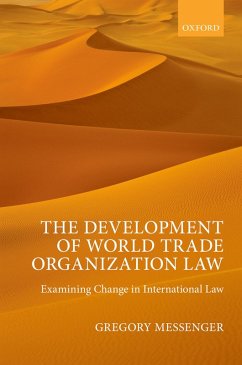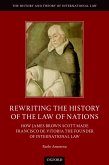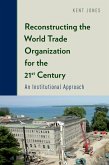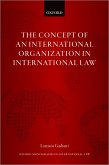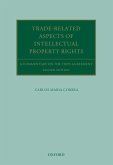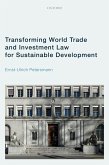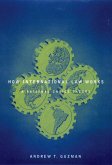The World Trade Organization is a central player in international trade regulation. The rights and duties that form WTO law are not created in a vacuum, however, and there exists a complex network of domestic, regional and international influences on the development of WTO law that go beyond the disciplines found in the covered agreements or the interpretations given by panels and the Appellate Body. As such, understanding the development of WTO law in a wider institutional context is critical to comprehending WTO law in a new age of legal globalization. The Development of World Trade Organization Law: Examining Change in International Law examines the development of WTO law through an analysis of competing global actors, norms, and institutions. Taking a different approach to social-scientific or traditional legal models, this book argues that such globalized actors are the driving force behind the development of WTO law yet not in control of it. Identifying causal language as key to understanding this development, the volume examines three different causal influences: instrumental, systemic, and constitutive. It applies this causal methodology to three key areas of WTO law: safeguard measures, sanitary and phytosanitary measures, and subsidies. The volume provides detailed explanations of why the law has developed as it has and offers insights into the future functioning of the WTO system.
Dieser Download kann aus rechtlichen Gründen nur mit Rechnungsadresse in A, B, BG, CY, CZ, D, DK, EW, E, FIN, F, GR, HR, H, IRL, I, LT, L, LR, M, NL, PL, P, R, S, SLO, SK ausgeliefert werden.

